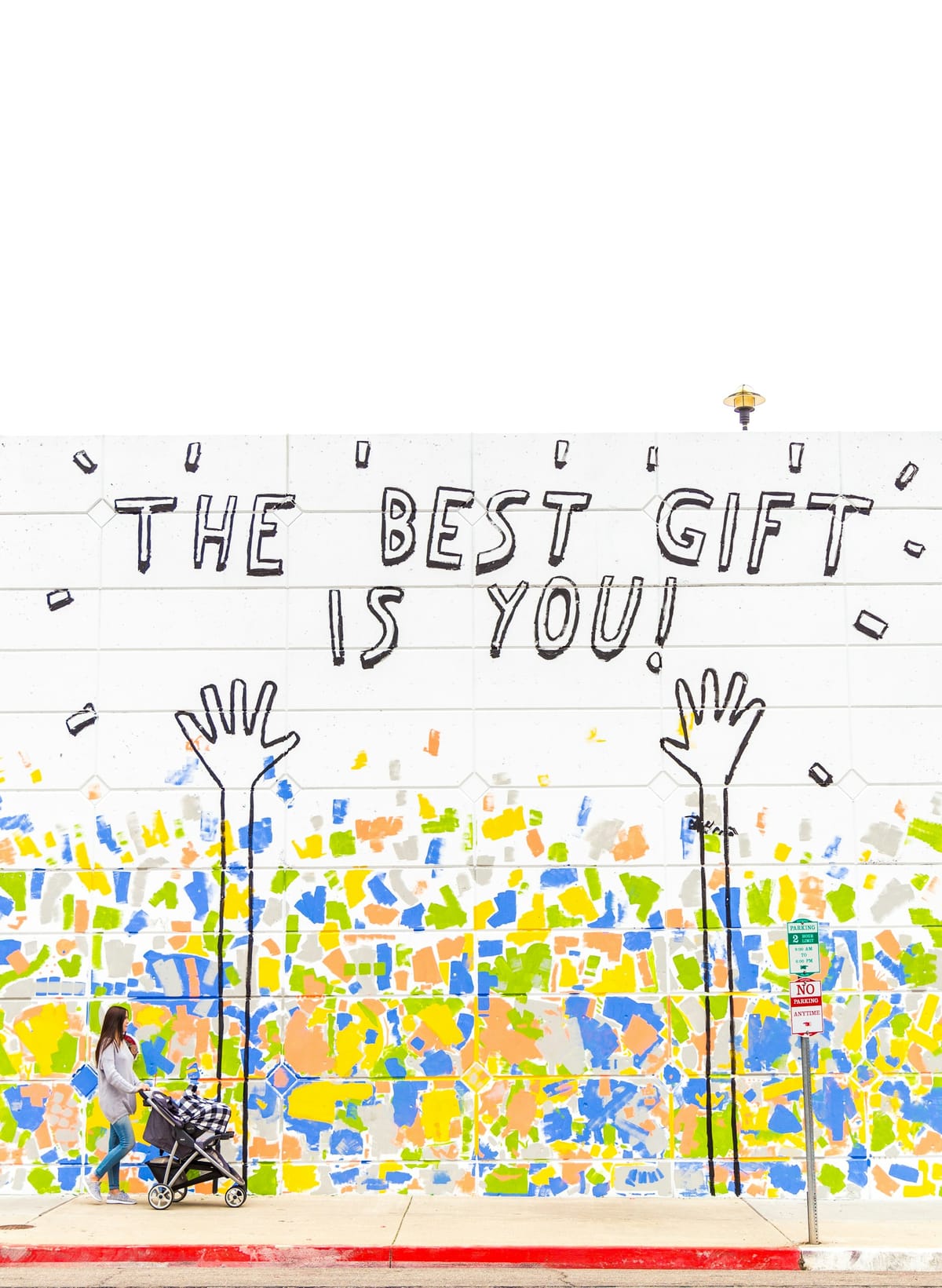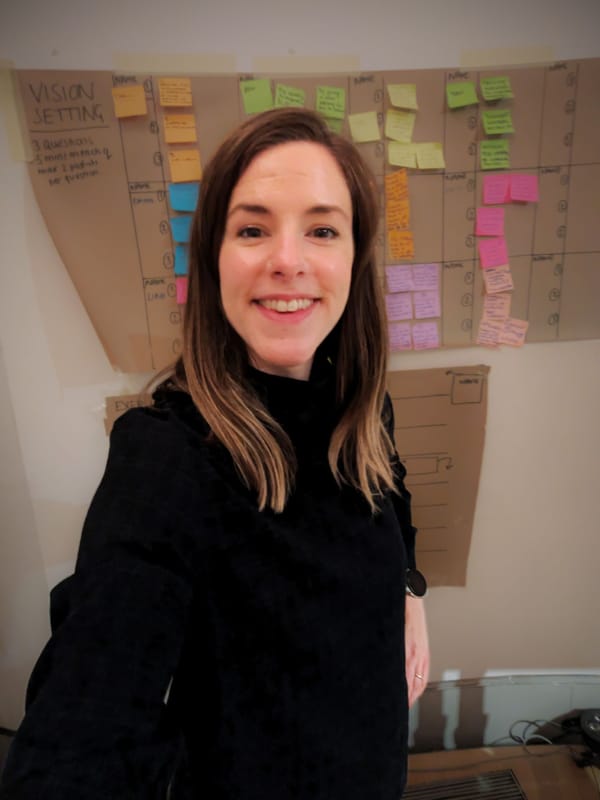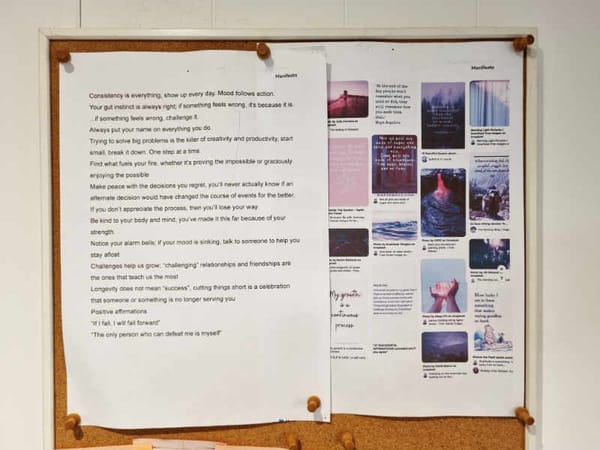My honest thoughts on content and AI

Hey everyone,
Last time I told you about how I’m firmly re-entering the space of content strategy and content design, and one of the driving factors for this move is the rollout and scale of AI in tech. So, if I’m going to use this platform to talk about AI, content, purpose, and freelancing, then now is the time to share my thoughts on it...
The AI mishaps
I use ChatGPT-4o every single day for both professional and personal purposes. It’s helped me save money by looking up discounts, and it’s even inspired a capsule wardrobe based on my style preferences. But it’s also given some questionable advice—much to my husband’s amusement, I now have a SIM-only deal with Three instead of EE, thanks to ChatGPT insights and a very hasty purchase.
In my role, it’s helped me as a content strategist because I now have more time to focus on the stuff that matters. To clarify right away, I'm not using ChatGPT to create content, and for obvious reasons, it doesn't work! It removes the contextual knowledge, individual spark and reflections that I so love to pack into my content. I use it for process-based tasks that historically would have taken me hours—consolidating meeting notes, finding examples of similar service offerings, or analysing basic Google Analytics data. Now, I can spend time finessing, reviewing, and adding my own fresh take, and that is immensely empowering.
What scares me isn’t the technology itself, but the people using it, often five steps ahead of policy and regulation, rolling out new products and services to their advantage and to others' loss
Don’t get left behind
I’ll always remember when Mark Zuckerberg had to explain how the internet works to members of Congress and our eyes collectively widened in disbelief - that the very same people who were supposed to hold Zuckerberg accountable didn't understand basic encryption. I don’t want it to be 2050, and I’m asking very basic questions about AI.
As we roll into 2025, I’m not going to offer up fresh commentary on AI ethics, but I will keep reading and researching ethical application and philosophical thinking around AI because it’s far more important to stay in the conversation than out of it—and I encourage you to do the same. What scares me isn’t the technology itself, but the people using it, they will be five steps ahead of policy and regulation, rolling out new products and services to their advantage and to others' loss.
Yes, we can access the source code of AI outputs, but we won’t see the processes or data that led to those outputs, meaning we’ll rely heavily on trust and goodwill from those who benefit. This brings a real risk that, just like the evolution of data that fuels social media echo chambers, we will witness exponential growth in the abuse of power with AI so it's critical that we continue to understand it to be able to know our rights.
Freeing up content teams - wouldn't that be amazing?
Back to content strategy and the world in which I've operated over the last few years. Over the years, I’ve worked with many content teams overwhelmed by the sheer number of content requests. They’re offering precious time and high-value skills to edit and improve content but inadvertently become bottlenecks because demand outstrips supply - and it always will when it comes to content.
Imagine if content designers (or any user-centred design practitioners) could become expert trainers in custom GPTs to create tools, like bespoke content guideline checkers, that represent all voices.
The individuals in these teams are burnt out and while there are methodical ways to optimise that process, it can be really tough, time-consuming and deeply embedded in broader cultural challenges. Additionally platforms out there that might help solve part of the problem are expensive and difficult to get through procurement.
AI could hold us accountable to content standards and principles in ways that not only save time but improve accuracy. Imagine if content designers (or any user-centred design practitioners) could become expert trainers in custom GPTs to create tools that represent all voices. Style guide checkers could be trained to check content in a more unbiased, scientific way than human editors are doing so currently. This wouldn't be around rewriting content, it could just be able providing suggestions for improvements for editors to share with subject matter experts.
Yes, of course, there's still a job to do to contextualise and socialise the improvements, but surely that's part of all good product development - testing, iterating, improving? For me, if it's the difference behind someone feeling overwhelmed with their workload to feeling like it's more manageable with more time for training and up-skilling, then it's worth the exploration.
So much of this is just thinking about the use case.

How I’ve used it as a freelancer
ChatGPT has been incredibly useful as a second “colleague” to bounce ideas off It helps me explore methodologies and processes I may not have considered before. I’ve used it for market research, planning workshops, and shaping activities. I like it for providing a starting point, which I can then refine through further research. AI helps me to create a starter for 10, a draft I can build upon.
I believe that my unique view on the world based on a unique set of experiences will continue to infiltrate into everything I do. AI won't replace that any time soon, because I won't let it.
It has also helped me review reports and sense-check them to avoid repetition or contradictions. Each instance has been a trial in assessing common pitfalls and limits of ChatGPT, helping me craft more effective prompts to get better results. Correcting ChatGPT’s mistakes has saved me time in the long run, allowing me to “train” its short- and long-term memory.
Ultimately, I'm holding onto my creativity, my personality and opinion to keep the soul and spark in all of my work. And even if the potential of AI can get closer to reasoning and reflecting on information, fundamentally, I believe that my unique view on the world based on a unique set of experiences will continue to infiltrate into everything I do. AI won't replace that any time soon, because I won't let it.
My takeaway
AI is an incredibly powerful tool that’s reshaping our work in content strategy, content design, and content marketing. While it’s not perfect—my capsule wardrobe is still a work in progress, and the verdict on Three’s network coverage in my area is still out—it has 100% freed me to focus on high-value, meaningful work. From automating tedious tasks to helping me think through new ideas and plan upcoming work, AI has become a key part of my daily workflow.
That’s not to say I’m completely disillusioned; we've got to remain vigilant, especially regarding ethical concerns and transparency in how AI is built and used.
My advice? Embrace AI, experiment with it, but stay informed. AI will continue to evolve, and those who stay curious and critical will get the most out of it.
What are your thoughts?
Comment below, I'd love to hear your hopes and fears for the future of AI.





